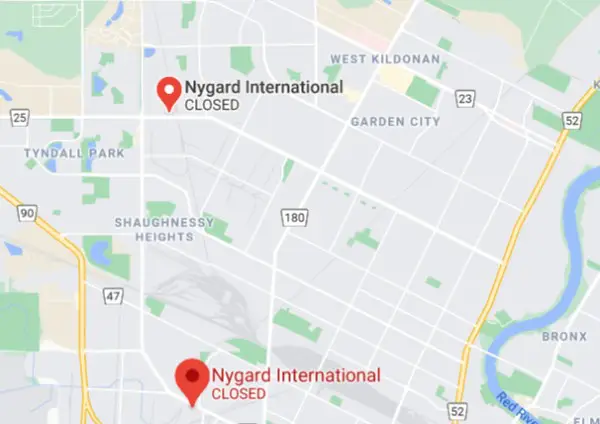
According to The New York Times, a Canadian fashion executive was charged with sex trafficking, racketeering conspiracy, and other crimes involving dozens of women and teenage girl victims.
Peter Nygard, 79-years-old, allegedly used his company’s influence, it’s money, and other employees to recruit female victims, minors, and adults. According to a nine-count federal indictment, for 25 years, these victims were recruited for the sexual gratification of Nygard and his associates. Nygard allegedly sexually abused some of the victims, while his associates assaulted or drugged others to ensure compliance with sexual demands.
Earlier this year, The New York Times detailed previous accusations about Nygard sexually assaulting minors in the Bahamas. His neighbor, Louis Bacon, hedge fund billionaire, accused him of sexually abusing minors, which led to a lawsuit. Dozens of women former employees outlined how alleged victims were lured into his Bahamas home. However, two of the women who initially claimed Nygard raped them said they were paid and fabricated their stories.
Nygard then blamed Bacon for any allegations that surfaced against him. However, the New York Times report highlighted decades of complaints and how Nygard would use threats and money to silence alleged victims. The current indictment has more than 80 women signed as plaintiffs. The indictment accuses Nygard of targeting women and teens with a history of abuse and victims from disadvantaged economic backgrounds. Nygard was ordered to be held until future court proceedings. The affidavit by Canadian authorities includes victims between the ages of 14-17 years old. Additionally, it describes that victims barely had control over their ability to leave premises without Nygard’s consent and psychological control techniques.
A few victims responded when they heard about the indictment and shared their stories. One victim said Nygard raped her at a party at his home when she was 16 in 2004. Another victim, 47, says Nygard raped her and held her against her will after a modeling job at his company’s warehouse in Winnipeg.
The New York Times stated that the indictment against Nygard says he used the idea of modeling and jobs in the fashion industry to lure in teenage girls and women. He allegedly used company funds to pay for pamper parties, including free drinks, manicures, and massages. Victims were allegedly forced to engage in commercial sex. Nygard and his lawyers have denied the charges.

Attorney contributor Guy D'Andrea, an experienced sex abuse lawyer, has represented numerous victims of sexual abuse and sex trafficking. In an interview, we asked Brian to provide commentary on the legal rights of victims abused or trafficked by their employer.
"Modeling companies and organizations have a legal obligation to protect their workers and provide a safe environment for employees. To ensure workers’ safety, organizations must monitor current workers and ensure they are acting according to the law and company policies. Unfortunately, we have seen across the country; sexual predators use their positions of power at a company to abuse employees. These predators abuse their trust and authority when engaging in lower-ranked employees. Companies and organizations must do their best to protect all employees to the best of their ability."
"First, victims must ask if the company or organization did their best to prevent sexual abuse from occurring. If the answer is no, the victim may have grounds for a lawsuit. Victims can file against the offender, but victims may also have grounds to file a claim against the company for negligence. An example of negligence is if previous misconduct complaints are made against someone at the company, but the company ignores the incidents and complaints. Another example of negligence is if misconduct complaints are filed against someone, but the person is permitted to continue working. In such cases, the company or organization would be deemed negligent."
"If companies and organizations do not implement preventative measures to ensure workers’ safety, the company may also be considered negligent in sexual abuse crimes. Examples of preventative measures would be cameras, easy reporting systems, and staff trained to be abuse reporters. Companies have an obligation to be aware of the abuse occurring by their employees. If the company ignores abuse, the company may be deemed negligent and held accountable in a court of law. Victims and their families should acquire an experienced sex abuse lawyer’s services to further explore their legal options. Victims should know they may be eligible to receive compensation for damages."
 info@legalherald.com
info@legalherald.com